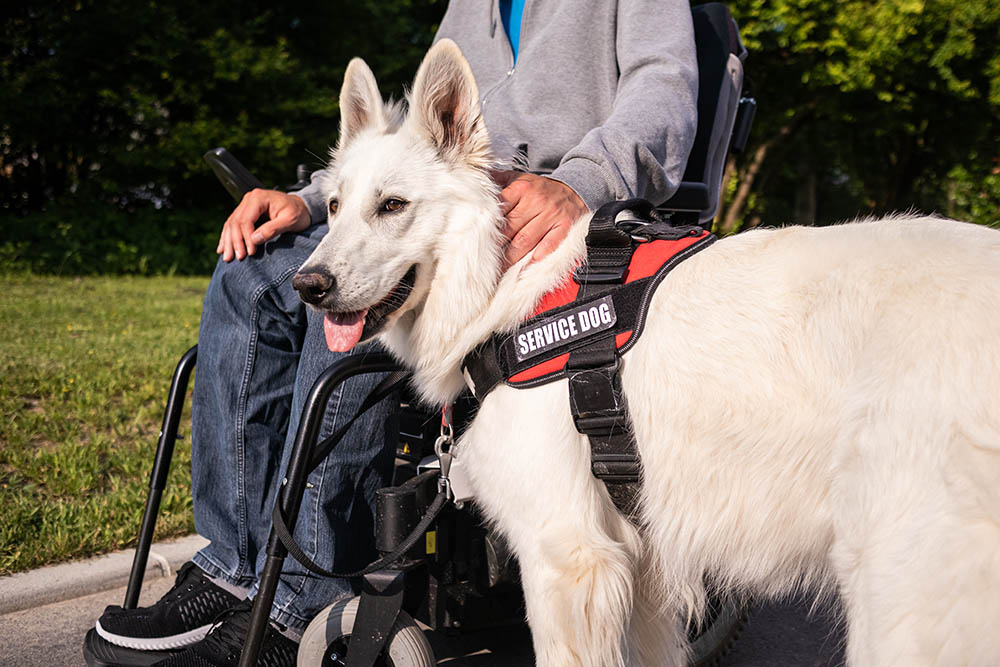One of the most controversial topics in the world of pets today swirls around service animals, therapy pets and emotional support pets. As a trainer, I’m frequently asked how to train pets to fill the needs of their owners. Each category has its own requirements. The time it takes to train your pet depends on which job your furry friend has applied for. State and federal regulations are also different for each category.
Service animals, including psychiatric animals, are trained to perform a certain job. These jobs are as varied as the dogs themselves. Service dogs can be trained to bring things to you, open doors, watch for traffic, alert you if a phone is ringing, or tell you if someone is at the door. Other dogs help with less noticeable illnesses like diabetes, autoimmune disorders and seizures. Psychiatric dogs help people cope with trauma. They alert someone to situations that could result in harm to that person.
Service animals require more training because their jobs are more specialized. It is also extremely important that the service animal has a strong bond with the person they will be helping. The bond between a human and an animal affects the way the animal responds to the human. It also changes the way the human responds to the animal. The more you do with them, the more they are going to want to be with you, and the easier it will be for them to determine when something is not right. If they don’t spend as much time with you, they may sense something is off, but not alert you as quickly or as effectively as they could. State and federal regulations allow service animals to accompany their human everywhere.

Therapy pets are not service dogs or emotional support pets. They help people mentally and physically. I break this group into two categories: mental health and physical health. The mental health therapy pet is there to brighten someone’s day. The physical health pet helps people improve their fine motor skills through petting, grooming and playing.
Therapy pets migrate toward places where people are “house bound,” like hospitals and nursing homes. There are very few restrictions regarding the type of animal, but the requirements remain the same. A therapy pet must respond to basic commands: sit, down, come and wait. They must not jump on people or pull on their leash when walking. They are required to pass a temperament test. Your pet must enjoy being around people and crowds. The pet should not get upset if they get bumped, their tail accidentally gets stepped on or their fur gets tugged. State and federal regulations limit where these pets are allowed to go.
Emotional support pets are not service animals or therapy pets. This group of pets offers support to their owners during difficult situations. They do not require any special training, and there are no restrictions on breeds or species. Emotional support pets should have some basic manners – commands like come, sit, lay down and wait, as well as walking on a leash without pulling – and be comfortable in new environments. The number of places where you can take your pet is slowly increasing. Several restaurants now have areas designated for pets. Bookstores, craft stores, hardware stores, home improvement stores and big-box stores are changing their views on pets. State and federal regulations don’t offer guidelines for emotional support animals. Individual business and managers usually decide if these pets are welcome in their establishments.
There are some big differences between these three categories, but the bottom line is our pets make a big difference in our lives and the lives of the people they come in contact with.
Have questions about training your pet? Send me an email at taramarie611@gmail.com and I’ll be happy to help.






